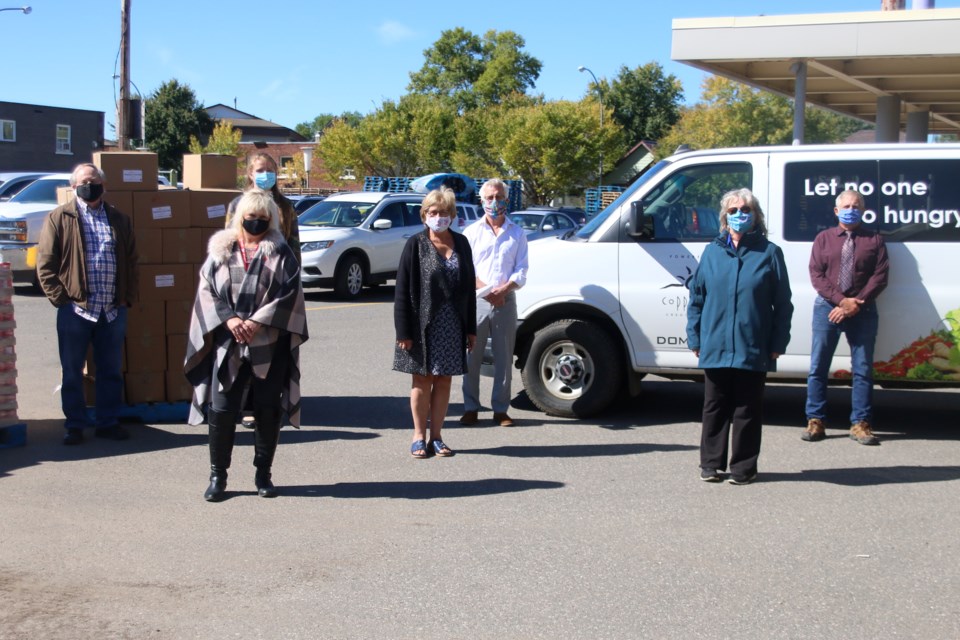THUNDER BAY - With demand for area food banks expected to increase in the coming season, a $400,000 investment from the federal government for local food security agencies will go a long way, but there is still a need for public support.
“The funding will only last depending on all the other variables that are coming to play here,” said Volker Kromm, executive director of the Regional Food Distribution Association. “It’s one of those unknowns. Our service area has greatly increased, the transportation costs, the cost of food has gone through the roof.”
The federal government is investing $413,210 to improve food security in the north. The funding is part of the $100 million emergency fund for food announced last April.
“There’s always a need for food banks,” said Marcus Powlowski, MP for Thunder Bay-Rainy River. “Even in the good times there is a need for food banks, but especially under COVID-19 there is an even greater need. People without work, people falling through the cracks. The federal government rolled out a whole bunch of programs to help people manage the pandemic.”
The funding will be distributed to several organizations throughout Northern Ontario, as well as Lac Des Mille Lacs First Nation, Naicatchewenin First Nation, Anishinaabeg of Naongashiing, and Big Grassy First Nation.
The RFDA, which received $198,150, will use the funding to address new costs that come with now serving all of Northwestern Ontario.
According to Kromm, this will include the increased cost of transportation and rising food prices.
“These are all costs that were not budgeted for so now we are looking at ways of changing the model so that we can sustain it,” he said. “So funding from the federal government is really important for this sustainability piece.”
Kromm anticipates the funding should help the RFDA make it through to the new year, but with large food drives no longer taking place, they will be looking at ways to still reach out to the community for support and donations.
We are still dependent on the Christmas season and holiday season. Without that we are going to run short,” he said. “Now as the kids are going back to school, the local food banks now are up 50 per cent. It’s starting to recapture some of that lost momentum and we are going to be looking for more food.”
But food security is about more than simply accessing food. NorthWind Family Ministries also received $8,360 for its cooking for life classes.
“It’s giving the skills and techniques so they can go and transform whatever they have in the pantry and turn it into a meal,” said Kyla Tempelman, cooking for life coordinator at NorthWind Family Ministries. “I think that’s a very valuable gift to give them.”
Tempelman added that they work with a lot of First Nations communities and people who may not be familiar with how to prepare dishes with food that is not readily available.
“Last Easter I heard of people receiving turkeys and I heard of people throwing out their turkey because they didn’t know what to do with it,” she said. “So it’s giving those skills of how to be able to use that and feed their families and their communities.”
